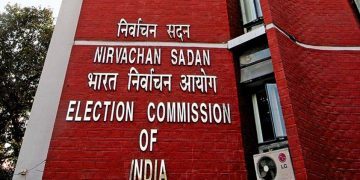PIYUSH ROY
“There was a great revolutionary leader in Africa called Nelson Mandela. He has given us a very beautiful word – Ubuntu.
So, what is the meaning of Ubuntu?
Well, once, a number of scientists visited Africa. They kept a basket of fruits in front of the tribal children and told them, ‘Let’s have a running race. The one who reaches the basket first will get all the fruits’. When the race began, the scientists were amazed at what they saw. Because the children did not run when the race began. They held each other’s hands and walked towards the basket together. The scientists asked them, ‘Why did you do that?’ They replied – ‘U-BUN-TU’. It means, I exist, because we exist! So, at least once in our lives we must do something that will benefit not only us, but others as well.”
The above scene unfolds in a classroom in the new Marathi release, Ubuntu. The film, set in a village in Maharashtra highlights the challenges around the existing and daily functioning of many rural schools. The narrative may be Maharashtra specific, its concern is pan-Indian. The backdrop could have been any village school or pathshala; in Marathi, it’s called a shaala. This is a minimal two-room set-up with one teacher, who teaches everything from maths and science to languages, games and geography. The medium of instruction is vernacular, and the student strength barely reaches double digits on a busy day. The entire village is their research lab, which then gets their teacher into unintended troubles with the elders. The film begins with the children accidentally burning a farmer’s haystack while testing the convex and concave attributes of the stolen specs of a sleeping villager.
Actor-director Pushkar Sudhakar Shrotri’s second film, Ubuntu attempts an engaging narration, with slice-of-life adventures that while revealing new insights into the pleasures of childhood in a non-urban set-up, also makes some serious comment on the fault lines in a ‘free-for-all’ education system. Thankfully, the blame, as often, is not left at the door of the state alone. A village school’s survival depends as much on official grants as a way-of-life to be endorsed by influential local elders, backed by an insistence on youngsters for the need to be educated, and not play truant.
The real drama begins when the school faces shut down because of consistently inadequate attendance. That’s when some of its bright and regular students step in, to contribute in bits and whole, to highlight that ‘a school is, because of its students’.
At a time, when faith in our posh-and-protected urban schools has hit an unusual low, Ubuntu, returns our thoughts to the fundamentals of good education, and the integral role of both the teachers and the students, in making a temple out of a classroom.
In one of the film’s profoundly moving moments, we find two of its village school protagonists, on their first visit to a town, suddenly finding themselves outside an up-market English medium school, about to close for the day. As its neatly dressed, confident, and organised order of students rushes out with their big bags and other props of sophisticated education to waiting buses, cars and parents to be taken home, we realise the disparity of an education that is increasingly getting exclusive on parameters of merit and quality.
Many students in the hinterland, who really want to learn, often do not have the amenities or the encouragement. Drop-outs in such an environment are encouraged, and discipline is exchanged for that extra hand of free labour to bring additional income in a poor family. How many teachers are there like the one in Ubuntu, who would go that extra mile, staying away from their families to impart education in an environment with little infrastructural support, and bad road and phone network? Only someone, who has risen from the fringe, might have that extra affection for uplifting that fringe.
Now juxtapose this with the comfort education that is provided on a platter to urban kids with their parents often manoeuvring their career and life decisions to make quality education available to their children. Fact is that, often when one gets something on a platter without little personal effort, somewhere the foremost goal of good education – the making of a compassionate human being – doesn’t get fully realised. The privileged need to be made aware of those less fortunate.
Ubuntu takes an easy, comfort pace to connect. This is not a story about miracles, surprises or unusual underdogs. Until interval, one may even think that its protagonist is the teacher, before the children take over. But what endears most is a plausible and positive storyline that survives tough challenges, because of the inherent niceness of people everywhere. Some of the most predictable fears about unguarded young people in unknown spaces are allayed well and how.
This ‘caring and compassionate’ India also exists — an India where two children, a boy and a girl, can survive a night in an unknown place without harm, where kindness can come from the most unconnected quarters and the cherished ideals shared in a Prime Minister’s ‘Mann ki Baat’ can inspire four little feet to walk and work wonders.
The film also teaches us a wonderful new word of ‘action’ with a lot of hope and heart, often dismissed to be just an acronym for another fancy software operating system.






































